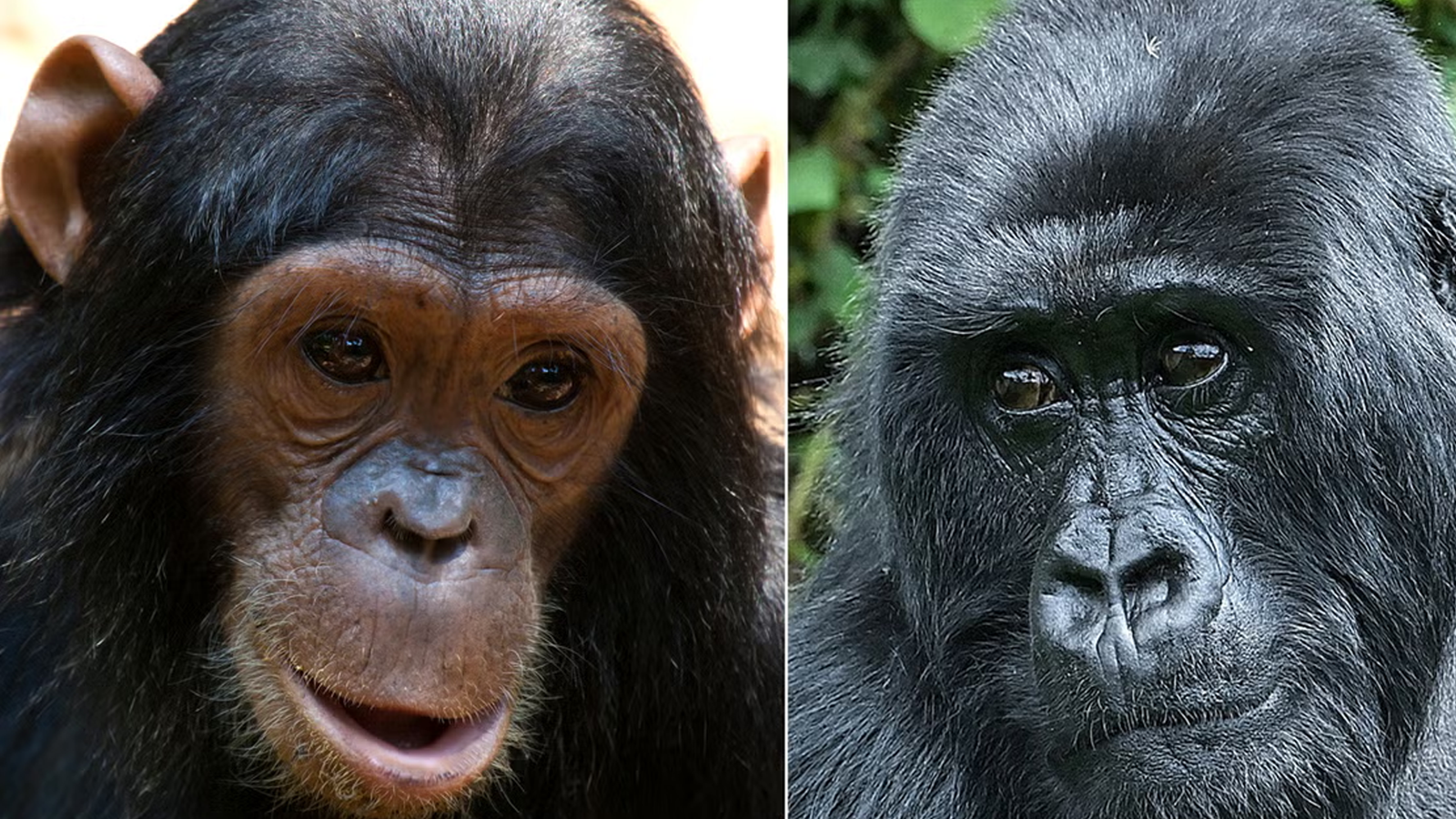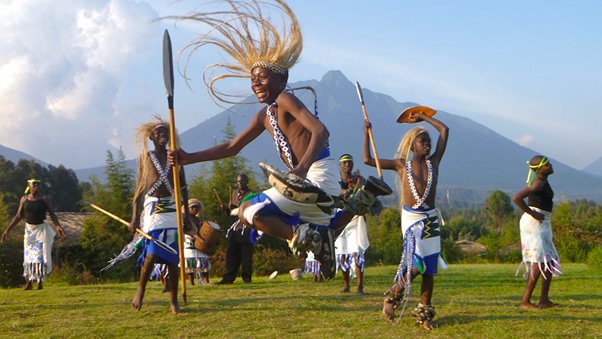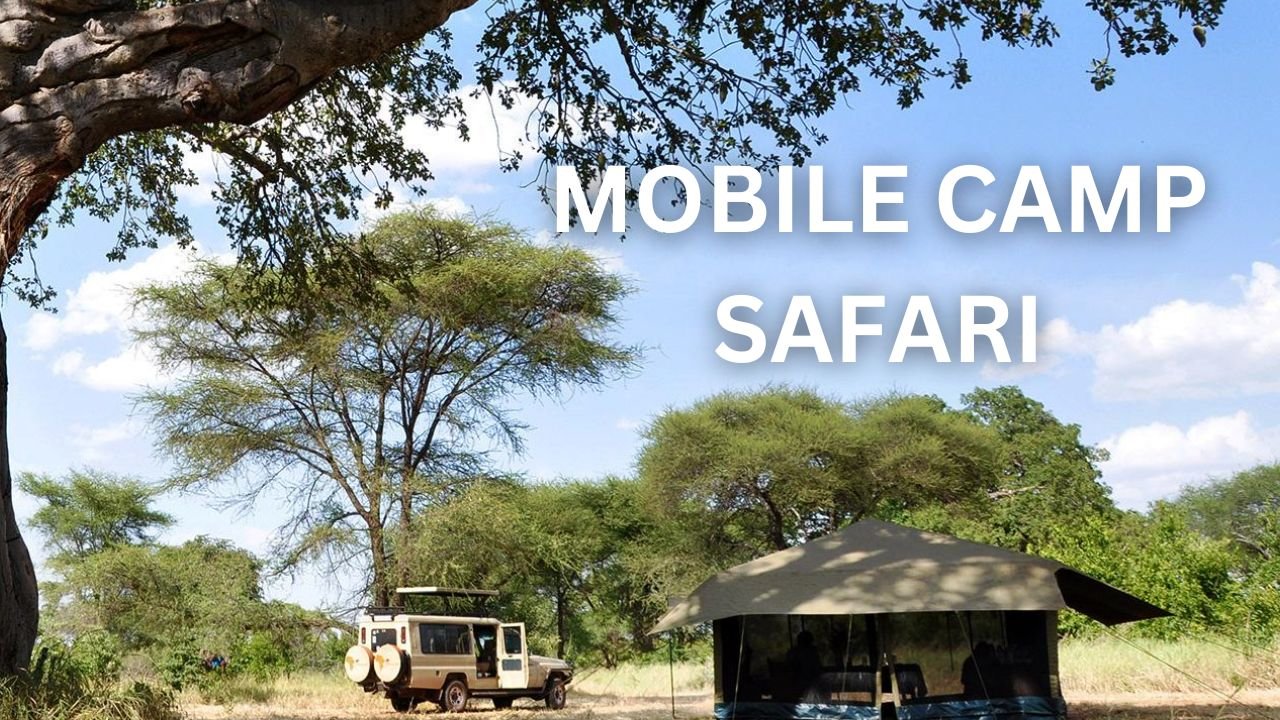Chimpanzee habituation in Kibale forest national park is among the activities to do around the enchanting landscapes of south-western Uganda. Among the park’s remarkable conservation efforts is the captivating process of habituating these wild primates. By gradually familiarizing them with human presence, researchers and visitors alike are granted unprecedented opportunities to delve into the world of these intelligent creatures. Let us embark on a unique journey to uncover the intricacies of chimpanzee habituation in Kibale Forest National Park.
Chimpanzee habituation in Kibale forest
Chimpanzee habituation in Kibale Forest National Park follows a carefully orchestrated plan that unfolds over several years.
This process allows the chimpanzees to acclimatize themselves to the presence of humans, eroding their instinctual fear and aggression. By employing a progressive approach, researchers foster an environment where both parties can coexist harmoniously, enhancing our understanding of these magnificent beings.

During chimpanzee habituation in Kibale Forest national park, you have 98% chance to find chimpanzee family since the park has over 1500 chimpanzees. There are 3 sessions for the habituation which is the morning time from 8:00 am, the mid morning session and the Afternoon session that starts at 2:00 pm.
Chimpanzee habituation permits cost 250 USD for the non-foreign Residents, 200 USD for Foreign Residents and 200, 000 UGX for East Africa Residents.
During Chimpanzee habituation, at the outset of the habituation process, researchers spend brief but impactful periods near the chimpanzee groups which is approximately one hour. The tourists carefully gauge their reactions. Slowly and steadily, the duration and proximity of human encounters increase, always with a respectful regard for the chimpanzees’ daily routines and social dynamics.
This gradual integration allows the chimps to retain their natural behavior while enabling researchers, tourists to glean invaluable insights into their social structure, communication, and ecological patterns. Through the art of chimpanzee habituation in Kibale Forest National park, tourists and researchers become immersed in the rich tapestry of chimpanzee life.
Their tireless observations unravel the complex threads of chimpanzee behavior, revealing unique personalities, intricate social hierarchies, and the nuanced ways in which these primates communicate. This wealth of knowledge becomes a powerful tool for conservationists, empowering them to safeguard the chimps’ habitat and implement effective protective measures.
Process of chimpanzee habituation in Kibale
Kibale Forest National Park’s habituated chimpanzee groups present an enchanting spectacle for visitors. Guided tours and treks offer a remarkable opportunity to witness these captivating creatures up close, providing a window into their natural habitat and daily routines.
With respectful distance and awe-inspired curiosity, visitors are treated to unforgettable encounters, igniting a passion for chimpanzee conservation and cultivating a deep appreciation for the intricate web of life.
While habituated, the chimpanzees of Kibale Forest National Park remain wild creatures, deserving of utmost respect and care. Guidelines and regulations are strictly enforced to ensure their safety and well-being.
Visitors are entrusted with the responsibility of maintaining a safe distance of 7-8 meters, avoiding direct contact, and adhering to the guidance of knowledgeable park guides. This dance of responsibility allows us to protect and preserve the delicate balance between human interaction and the chimps’ natural lives.
Chimpanzee habituation in Kibale Forest National Park is not only an endeavor to unravel the mysteries of our primate relatives but also a beacon of hope for their conservation.
By nurturing an understanding and appreciation for these remarkable creatures, we inspire collective action to safeguard their habitat and the biodiversity it supports.
The revenue generated through responsible tourism contributes to local communities, fostering a symbiotic relationship that ensures the long-term survival of chimpanzees and their extraordinary home.
Besides Chimpanzee Habituation, Kibale Forest National park is known for its rich biodiversity as well as stunning land scape. Here are some of the other activities to do in Kibale Forest National Park.
Bird watching in Kibale Forest National Park,
The park has over 370 according to the UWA Statistics, however according to bird researchers, they have found over 702 species of birds in Kibale Forest.
This makes it a haven for bird lovers. You can grab your binoculars and explore the forest trails to spot a variety of colorful bird species.
Tourists have high chances of seeing different bird species that are notable such as African pied wagtail, Great blue turaco, Pin-tailed whydah, Slender-billed weaver, Tropical bou bou, Green Breasted Pitta among others.
Chimpanzee trekking in Kibale Forest National Park
Kibale Forest national park is known for having a large number of Chimpanzees which can be seen during chimpanzee trekking. This is a guided activity with skilled rangers who locate chimpanzee family group.
Chimpanzee trekking permit for Kibale national park costs 200 USD for Foreign Non-Residents, 150 USD for Foreign Residents and 150,000 UGX for East African Residents.
Nature Walks in Kibale Forest National park
These are walks through the Kibale Forest alongside an experienced, armed tour guide. During the walks, you explore the flora and fauna, you learn about the different plant medicines that can be used by humans.
Nature walks can take 1-2 hours or more depending on your physical fitness. Nature walks cost 5 USD for Foreign Non- Residents, 5 USD for Non- Residents and 10,000 ugx for East African Residents.
Bigodi Wetland Sanctuary
This offers an immersive nature experience. You should embark on a guided walk through the swampy wetlands. Which in Bigodi Wetland Sanctuary, you have a chance to see primates, birds, and other wildlife.
Cultural Encounters in Kibale National Park,
The area is surrounded by Batooro people and the Bakiga people. Most of the cultural tours in Kibale take place in Bigodi community which is a highly rich cultural village.
While in the Bigodi village, tourists visit traditional healers, schools, churches, and homes of the elderly men and women. You can also visit the Bigodi Women’s Group.
This helps you to experience the local cultures around Kibale. You can also visit Amabere Ga Nyina Mwiru caves which is a rich heritage site for the Batooro people. During cultural entire, you will learn a lot from their heritage, their traditional cultural dances, and traditional foods among others.
Hiking in Kibale Forest National Park
The park has a big number of hiking trails which allow you to explore the diversity landscape. The Crater Lake Hike is one of the popular options since it offers breath-taking views of the surrounding crater lakes and lush vegetation.
Chimpanzee habituation in Kibale National Park embodies a remarkable chapter in the tale of wildlife conservation. As we traverse the winding paths of this process, we witness the delicate fusion of science, preservation, and responsible tourism. Together, we unlock the secrets of our primate kin, fostering a deeper connection to the natural world and an unwavering commitment to protect the wonders that lie within.
You can contact Jewel Safaris to organise for you a tour to Kibale Forest National Park for Chimpanzee Habituation and we celebrate the unique journey of chimpanzee habituation in Kibale National Park as we embrace the harmonious coexistence between humans and our wild counterparts.



